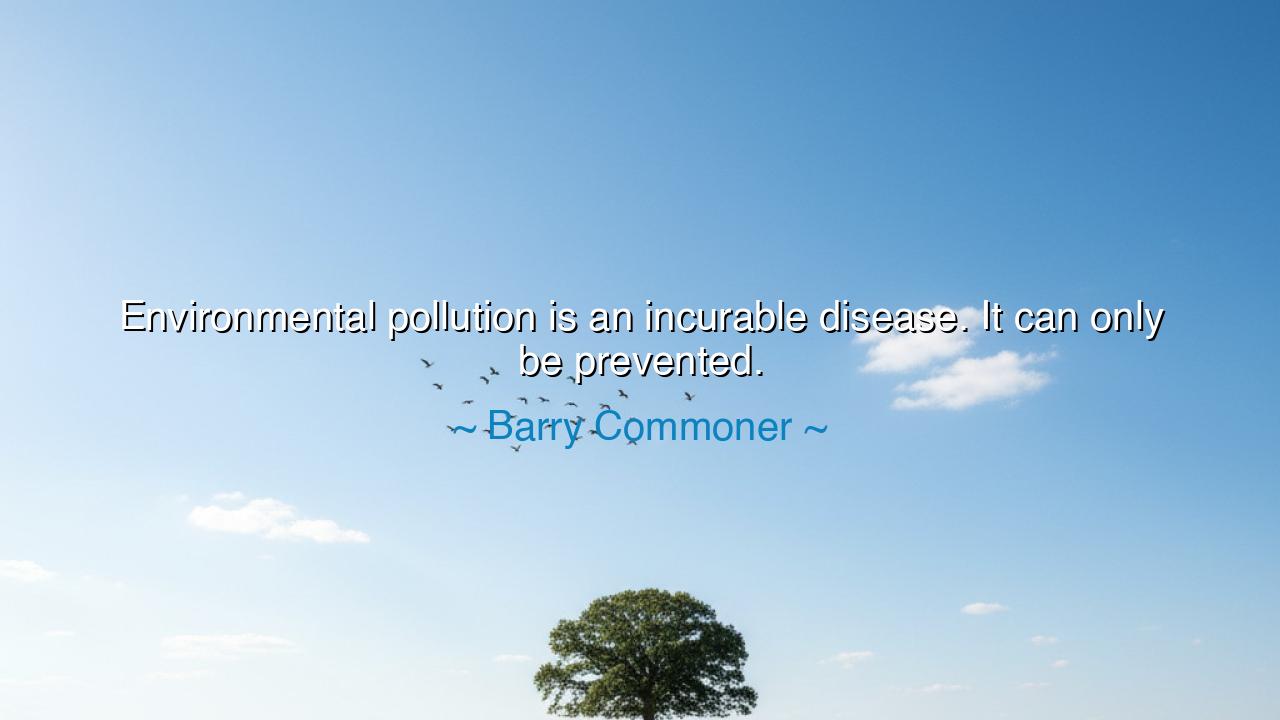
Environmental pollution is an incurable disease. It can only be






In the solemn yet stirring words of Barry Commoner, one of the early prophets of modern ecology, we hear a truth as sharp as it is sorrowful: “Environmental pollution is an incurable disease. It can only be prevented.” These words, spoken in an age of awakening and warning, are not the cry of despair, but the call of wisdom. They remind us that the Earth, once wounded, cannot easily be healed; that the poisons we spill upon the land and sky return to us in silence and in sorrow. For pollution is not a storm that passes—it is a scar, a sickness born from our own neglect. To cure it, Commoner says, is impossible; to prevent it, essential.
To understand the full weight of this message, one must know the man who spoke it. Barry Commoner, a biologist and one of the great voices of the twentieth century’s environmental movement, was among the first to warn humanity of the invisible cost of progress. He saw that the industrial age, though clothed in prosperity, had birthed a hidden disease—the contamination of air, water, and soil. Factories that once symbolized hope now belched smoke into the heavens; rivers that once mirrored the stars now carried the poison of waste. Commoner understood what many refused to see: that humanity’s assault upon nature was an assault upon itself. And like a physician diagnosing the human condition, he spoke plainly—prevention is our only salvation.
The truth of his words lies






AAdministratorAdministrator
Welcome, honored guests. Please leave a comment, we will respond soon